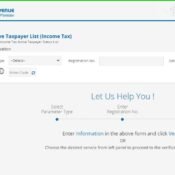Tax Planning Strategies for Small and Medium Enterprises (SMEs)

Tax Planning Strategies for Small and Medium Enterprises (SMEs)
Effective tax planning is crucial for Small and Medium Enterprises (SMEs) to optimize their financial performance and reduce their tax burden. By implementing strategic tax planning, SMEs can ensure compliance with tax regulations, maximize deductions, and reinvest savings into business growth. Here are some tax planning strategies tailored for SMEs in Pakistan:
1. Understand Your Tax Obligations
The first step in tax planning is understanding the various tax obligations that apply to your business. These may include income tax, sales tax, withholding tax, and other sector-specific taxes.Tip: Stay updated with the latest tax regulations and seek advice from a tax professional to ensure you are aware of all your tax liabilities.2. Choose the Right Business Structure
The structure of your business (sole proprietorship, partnership, limited company, etc.) can significantly impact your tax obligations. Each structure has different tax implications and benefits.Tip: Evaluate the tax benefits and liabilities of different business structures. Consult with a tax advisor to determine the most tax-efficient structure for your business.3. Keep Detailed Financial Records
Accurate and detailed financial records are essential for effective tax planning. Proper record-keeping helps in identifying eligible deductions, preparing accurate tax returns, and providing documentation in case of an audit.Tip: Implement a robust accounting system to track income, expenses, and financial transactions. Regularly review and update your records.4. Utilize Tax Deductions and Credits
There are various deductions and credits available to SMEs that can reduce taxable income. These may include deductions for business expenses, employee salaries, rent, utilities, and more.Tip: Identify all available deductions and credits and ensure you maintain the necessary documentation to support your claims. Consult with a tax professional to ensure you are taking full advantage of these opportunities.5. Plan for Capital Expenditures
Investing in capital assets such as equipment, machinery, and technology can provide tax benefits through depreciation and capital allowances.Tip: Plan your capital expenditures strategically to maximize depreciation benefits. Consider timing your purchases to align with your tax planning goals.6. Implement Employee Benefit Programs
Providing employee benefits such as health insurance, retirement plans, and other perks can offer tax advantages while improving employee satisfaction and retention.Tip: Explore tax-advantaged employee benefit programs and integrate them into your compensation strategy. Ensure compliance with relevant tax regulations.7. Consider Timing of Income and Expenses
The timing of income and expenses can impact your tax liability. By strategically planning when to recognize income and incur expenses, you can optimize your tax situation.Tip: Consider deferring income to the next tax year or accelerating expenses into the current year, depending on your financial situation and tax rates.8. Leverage Tax-Deferred Retirement Plans
Contributing to tax-deferred retirement plans can reduce taxable income while helping you and your employees save for the future.Tip: Set up and contribute to retirement plans such as Employee Provident Fund (EPF) or other pension schemes. Consult with a financial advisor to choose the best plan for your business.9. Stay Informed About Tax Incentives and Relief Programs
Governments often introduce tax incentives and relief programs to support SMEs. Staying informed about these programs can help you take advantage of available benefits.Tip: Regularly check for updates on tax incentives and relief programs offered by the Federal Board of Revenue (FBR) and other relevant authorities. Apply for eligible programs promptly.10. Seek Professional Tax Advice
Tax laws and regulations can be complex and subject to change. Professional tax advisors can provide valuable insights and guidance to help you navigate these complexities.Tip: Establish a relationship with a trusted tax consultant or advisor who can assist with tax planning, compliance, and strategy. Regularly review your tax planning strategies with your advisor to ensure they remain effective.Conclusion
Effective tax planning is essential for SMEs to optimize their financial health and reduce their tax burden. By understanding your tax obligations, keeping detailed records, utilizing available deductions, and seeking professional advice, you can develop a robust tax planning strategy that supports your business growth.At TAXASAAN.PK, we specialize in providing comprehensive tax consultancy services tailored to the needs of SMEs. Contact us today to learn how we can help you implement effective tax planning strategies and achieve your business goals.All Categories
Recent Posts
super-boss0 Comments
FBR Pakistan 2025-26: Tax Guide, Registration & Iris Portal
super-boss0 Comments
Understanding Filer Status and Income Tax in Pakistan
super-boss0 Comments

